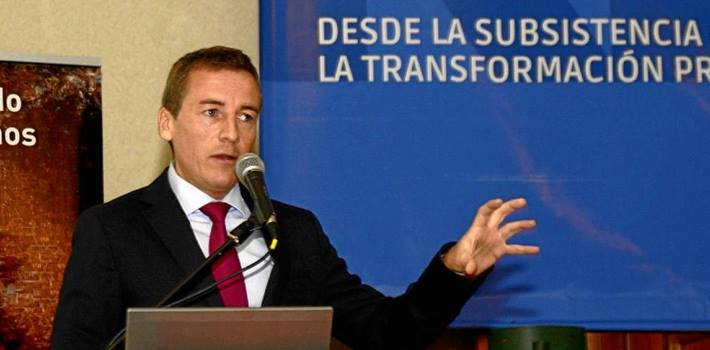Last week, the Development Bank of Latin America (CAF) released a report (see the end of this article) on entrepreneurship and development in the region. With the release, the CAF portrays itself as the region’s development bank, a role in which it has most evidently failed — and perhaps that is why it has chosen to focus its efforts on other activities, such as report drafting.
However, the report we are referring to shows that the organization does not do a good job on that front either.
Although the report starts with a glaring fact — productivity problems in Latin America — its diagnosis and proposed solutions are simply wrong. According to the authors, the productivity problems stem from flawed businessmen, a large share of whom apparently do not have the skills required to manage a company. In order to arrive at this conceited diagnosis, the authors draw on a deep and novel finding: that each businessperson is a unique individual.
This correct and obvious premise, however, does not stop the researchers from asserting that, despite all differences among them, most businessmen or entrepreneurs do not have the skills necessary to prosper. Apparently, they lack “both the talent and the ambition required to create business” — mainly because some of those who decide to launch their own firms do so solely after noting that they cannot attain a high income by working as employees.
Thus, the CAF considers entrepreneurship to be an exclusive activity, only to be carried out by individuals who share a specific set of traits — those who decide to establish a company for the right reasons. That is to say, the reasons determined by certain experts.

As you might guess, the report does not take into account the conclusions drawn by authors from the Austrian School of economics about the role of the entrepreneur. Nor does it mention the contributions made by Hernando de Soto towards the understanding of why any entrepreneur is valuable for his society if the state does not restrict his activity with unnecessary regulations and obstacles.
The authors make two erroneous assertions: (1) that entrepreneurs should have certain characteristics, determined by experts, and (2) that institutional incentives that prevent the business community from making decisions, reducing uncertainty, or investing in innovation and quality have no negative impact in business activity.
If the problem lies with entrepreneurs, the drivers of capitalism, the solution the authors propose is the obvious one: the state. How does government promote the development of quality businesses? There is no universal answer, short of letting entrepreneurs handle that themselves. Nevertheless, there is no doubt regarding the CAF’s contrary view of public policy.
The authors mistake a dynamic business climate for infrastructure building, a task traditionally trusted to the state. But here they also contend the need for a “wide scope” of “significant and effective public intervention, aimed at fostering entrepreneurship.”
Such intervention must apparently be thorough and multidimensional — a euphemism to avoid saying that it should permeate every sphere of life, even the decision regarding who can and who cannot be an entrepreneur. In other words, the authors believe that the state has not intervened enough in Latin America to stop individuals who are incapable of being “good” entrepreneurs. That’s right, fewer entrepreneurs would bring greater development.
Of course, not all Latin American entrepreneurs are good or moral people. However, no expert is in a position to determine who can and who cannot be an entrepreneur — much less those acting in an unaccountable state. Rather, an entrepreneur’s usefulness is defined by the success he has in his productive activities: gains or losses in the market, which he has a self-interest in pursuing.
Besides arriving at a terribly wrong conclusion, the authors also demonstrate a naïve understanding of public choice economics and how the political process works. In a region like Latin America, the report warns that public policy must avoid rent-seeking. Of course, that would never happen as a result of their proposed “wide scope” of “significant” intervention.
In addition to the shortsighted arrogance and statist diagnosis typical of this kind of international bureaucracy, the 270-page report ignores the current reality in the region. That includes the destructive role its states have had and how they have thwarted individual efforts to create wealth. CAF’s anticompetitive deference towards interventionism and protectionism also feeds into the opposition to ever-so-necessary investment and employment from transnational corporations in Latin American countries.
This report offers just one more example of the inability of self-proclaimed international development organizations to achieve their stated missions. Instead, their patronizing and belittling view of individuals means they incessantly assign ever more tasks to the state — more than it can or should carry out. They also perpetuate ideas already proved wrong, along with useless diagnoses that not only delay economic progress but also limit the scope of our freedom.
 Versión Español
Versión Español













